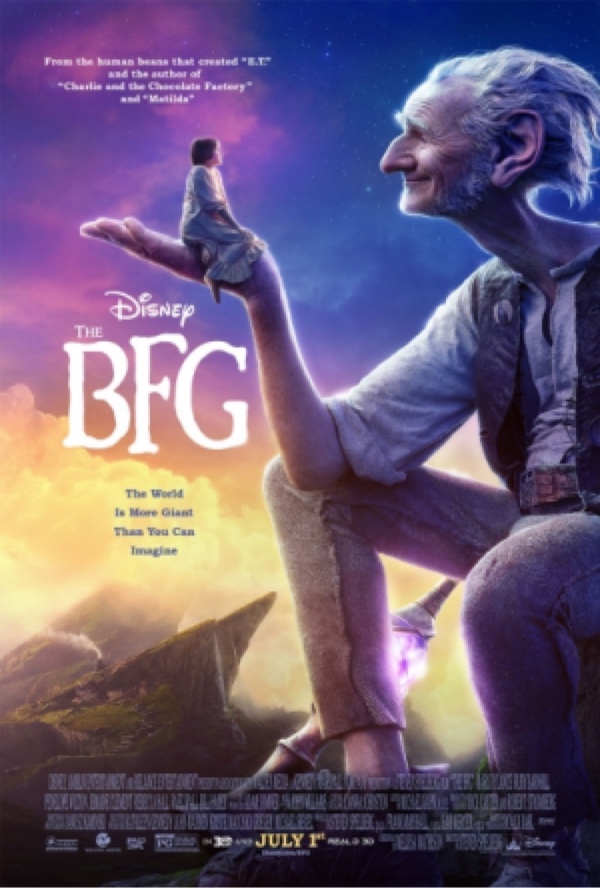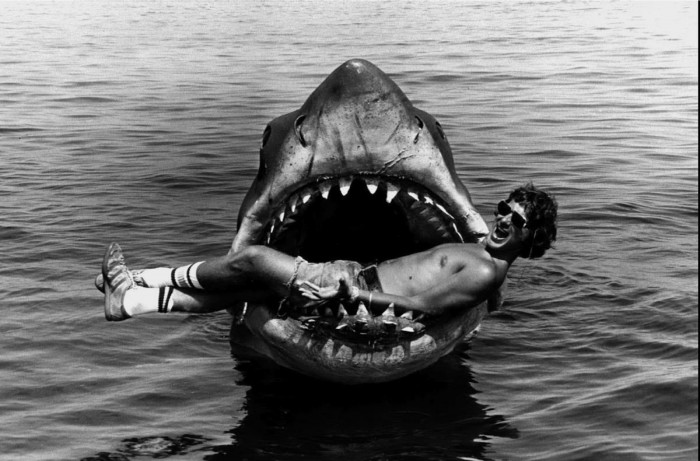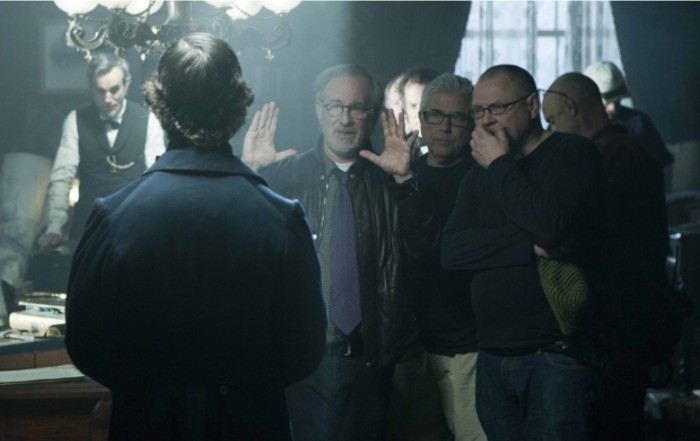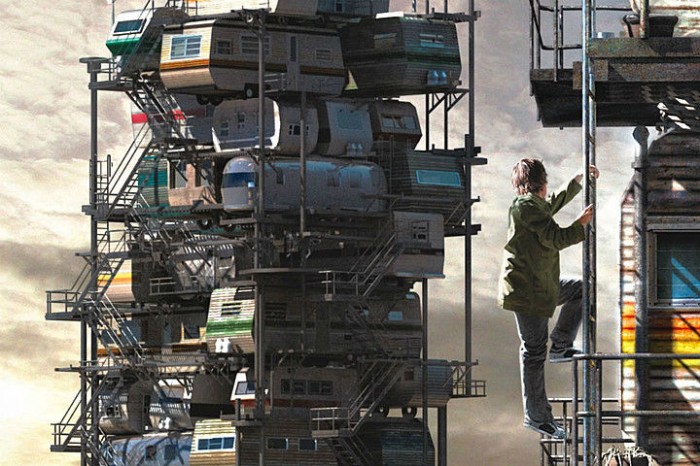'The BFG' Bombs: The Spielberg Brand Might Be Diluted But Don't Underestimate The Legendary Filmmaker
Steven Spielberg's The BFG hit theaters this weekend and landed with a "gigantic" thud. The $140 million Roald Dahl adaptation earned a measly $19.6 million in its opening weekend, which is a huge disappointment anyway you look at it. Is Spielberg, credited for creating the summer blockbuster with 1975's Jaws, no longer the big box office draw that he once was?
What or Who Is to Blame for The BFG's Poor Box Office Performance?
The BFG feels like the kind of pleasant, middling film an elementary school teacher would put on for his classroom when he needs a day off. The film has some moments of brilliance but also a jarring third act that closely follows the books yet feels completely odd. But it wasn't bad word of mouth that kept people from buying a ticket to this movie. The film is generally liked, earning a 6.6 average critic rating on Rotten Tomatoes and a 67% audience score. So who is to blame for The BFG's failure?
Roald Dahl Does Not Have Box Office Magic
The full responsibility for The BFG not connecting with modern audiences shouldn't be put on Steven Spielberg's shoulders. Not counting the author's work on screenplays like the James Bond film You Only Live Twice and Chitty Chitty Bang Bang, Roald Dahl's stories haven't typically been the recipes for box office magic. The only Dahl adaptation to make over $34 million domestically has been Tim Burton's Charlie and the Chocolate Factory.
Dahl's quirky stories typically don't attract U.S. audiences to the cinema. Fantastic Mr. Fox, James and the Giant Peach, The Witches and Matilda were all acclaimed by critics but none of the films earned back their budget in North American theaters. For example, Fantastic Mr. Fox cost an estimated $40 million to create and earned only $21 million back at the domestic box office.
The problem might have been that The BFG never looked like a blockbuster. For most people it looked like another dull children's adaptation from Walden Media. I can understand why Disney and Walden might think a $140 million bet on a Steven Spielberg adaptation of a Roald Dahl classic is financially promising but the resulting film is much less accessible and marketable than you would initially think, and more like the work of serious Spielberg than blockbuster Spielberg. Not having a big star to focus the marketing around might be part of the problem, but it's not like this is the first time Spielberg has made a film with a rather unknown young star.
It probably doesn't help that the film was released just weeks after Pixar's juggernaut sequel Finding Dory which is still plowing through the competition week in and week out. Its possible that a film like The BFG might have done better in the Holiday season.
Has Steven Spielberg Lost His Blockbuster Touch?
Over the weekend we saw a bunch of think pieces asking if Spielberg has lost his blockbuster touch. I think it's unfair to argue this based solely on The BFG. This is not the first time a Spielberg-directed general audience film has been considered a disappointment in its box office opening. The filmmaker's Close Encounters/Jaws follow-up 1941 was considered a failure by most but it has eked out a profit for Columbia and Universal. His $100 million Kubrick-inspired adaptation A.I. Artificial Intelligence earned $78.6 million domestically.
There might be an argument to be made of Spielberg's most recent general audience films. While Indiana Jones and the Kingdom of the Crystal Skull was a huge financial success, many fans and critics were left disappointed by the blockbuster sequel. And most recently the performance capture adaptation of The Adventures of Tintin earned only $17.7 million in its first 5 days of release in 2011.
Spielberg's recent general audience films feel less accessible and relatable and seem to lack the exciting high concept core of his earlier blockbusters. Both The BFG and Tintin feel like throwbacks — not the kind of stories that kids and general audiences are looking for today.
The Steven Spielberg Brand Has Become Diluted
I remember a time when Steven Spielberg's name alone was enough to sell me on a television series or movie. I'm not going to lie, I will still see anything this filmmaker makes, but I've become a bit more hesitant especially in the television arena. The Spielberg brand has taken a hit with barrage of crappy television projects featuring a Spielberg producer credit. These television shows make great use of Spielberg's name in the marketing materials, but the filmmaker's influence seems almost nonexistent in these projects. The quality of these television productions is taking a toll on the Spielberg name brand.
Spielberg used to be associated with the magic and wonder of the old Amblin films and the adventure and thrills of movies such as the Indiana Jones and Jurassic Park franchises. But as Spielberg evolved as a filmmaker, he decided to make more serious dramatic films. Some of these movies have been really great, but the diversification of his art has complicated the public association with the filmmaker's brand.
I'm honestly not sure if there are many directors today that can sell a film based on their brand alone. The first two that come to mind are Christopher Nolan and in a smaller respect Quentin Tarantino.
Ready Player Spielberg: A Look at the Future of Spielberg's Blockbusters
Only the future will tell if Spielberg has indeed "lost his blockbuster touch," but the kind of stories he is surrounding himself with gives me hope. The following three blockbuster film projects seem to indicate that the filmmaker's tastes might not be out of tune with the modern general audiences.
Tintin and The BFG were probably not the best choices, but the filmmaker's next film Ready Player One feels like the selection of a younger Spielberg. The story seems to have all the ingredients that audiences could want from a Steven Spielberg film, and unlike The BFG, it has greater star power (Ben Mendelsohn, T.J. Miller, Tye Sheridan, Olivia Cooke, Simon Pegg) and an exciting topical high concept that should attract a larger audience. This film is in production now and the only one we know for sure is getting made but Spielberg's potential blockbuster future shows promise.
Spielberg's adaptation of Daniel H. Wilson's book Robopocalypse also sounded very promising, but who knows if he'll ever make the film. Its a science fiction story told after the robot uprising, a tale many people have likened to the work of late Jurassic Park author Michael Crichton. Adapted for the screen by Drew Goddard (Lost, The Martian, Cabin in the Woods, Cloverfield), the film was once gearing up to be filmed in summer 2013 with Chris Hemsworth, Anne Hathaway and Ben Whishaw before Spielberg put the project on hold indefinitely.
And of course there's Indiana Jones 5 which will reunite Spielberg with Harrison Ford. It seems that Spielberg has something to prove after Indiana Jones and the Kingdom of the Crystal Skull and while the filmmaker says his friend George Lucas will be involved, it will likely be in a minimal capacity.
While I'm not sure the Steven Spielberg name brand is enough to sell a movie these days, I think it's too early to make assumptions about Spielberg's blockbuster prowess. The next few years will tell us a lot, and I would never bet against the legendary filmmaker.



